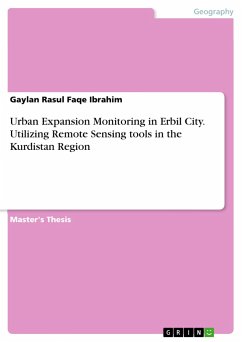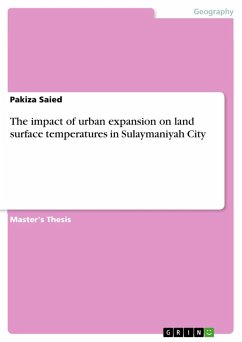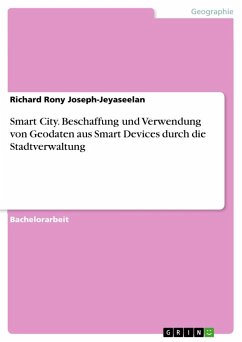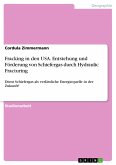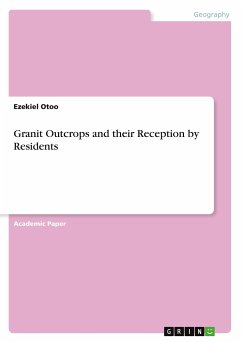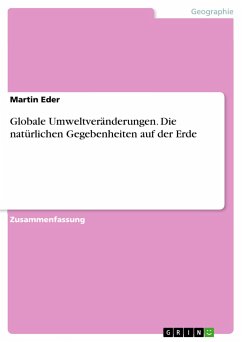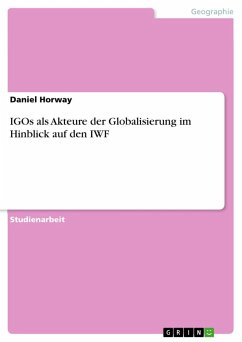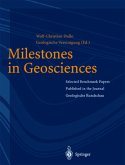Master's Thesis from the year 2013 in the subject Geography / Earth Science - Cartography, Geographic Information Science and Geodesy, Sheffield Hallam University (Sheffield Hallam University), language: English, abstract: Monitoring urban land use/cover changes provide spatio-temporal information on the pattern and the amount of the changes that has taken place across the land use/cover classes, and the information obtained from the urban expansion are valuable for sustainable planning and management of urban resources. Remote sensing techniques provide fast and effective means for classifying and mapping urban land cove/use change through examining spectra characteristics of multi-dates satellite images. In recent years, Kurdistan region cities have witnessed a rapid growth of the urban rates due to previous socio-economic and political variations in the area. The purpose of the study is to analyse and visualize spatial pattern of urban land use changes in Erbil city-Kurdistan and to quantify the amount of variations in the land use classes by applying remote sensing approach. The research examines multi-dates Landsat 5 TM imageries for 1987, 2000 and 2011 by using supervised classification of maximum Likelihood classifier to display and measure the changes in the land use/classes in ERDAS 9.1 imagine processing software. The accuracy of the overall classification was measured by using confusion metrics and Kappa coefficient to test overall accuracy classification. The study achieved an overall accuracy which rate from 95, 96.43 and 94.29 in 1987, 2000 and 2011 respectively, which indicates that the research has achieved a significant level of classes. The outcome of the study revealed that the study area has remarkably experienced changes in its land use/cover during the period of the study as built up area was increased by (3975.66 to 6123.7 hectares) over in 1987 to 2000, and (6123.7 to 12755.1 hectares) in 2000 to 2011. On the other hand, the amount of other classes has greatly declined during the period of the study from. Evidence from the post classification analysis has shown that open land and vegetation classes have experienced the most significant changes of rates in the urban land during the period of the research. For example, the rate of changes from open land to urban land is (5084.46), whereas the rate of the vegetation that converted to urban land is (2130.69).
Hinweis: Dieser Artikel kann nur an eine deutsche Lieferadresse ausgeliefert werden.
Hinweis: Dieser Artikel kann nur an eine deutsche Lieferadresse ausgeliefert werden.

